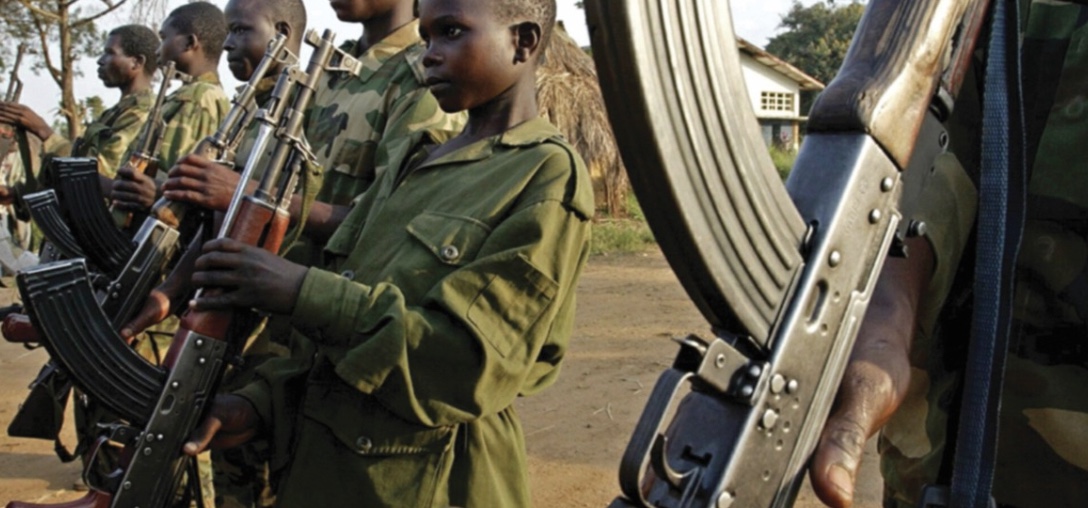(To Lorenzo Midili) Child soldiers, employed in armed conflicts, represent a great danger to the entire international community. The number is around three hundred thousand minors recruited by the armed forces for suicide bombings, domestic services and sexual exploitation. Putting an end to this phenomenon is a constant challenge, also linked to the global arms trade, for international society. Not surprisingly, state and non-state actors who recruit and deploy minors on the ground rely on military assistance from some of the world's leading arms exporters. International law identifies the expression "child soldiers" such as "all persons, male or female, under the age of 18, belonging to a regular army or to a group in any case armed, enlisted on a voluntary basis or by force ”.
This involves a real exploitation of minors since, not only are they used in the "role of weapons", but also in various sectors such as the textile sector, where they are selected to perform work functions due to their small hands, causing injuries on the same for activities carried out without time limits. In this regard, it is essential to distinguish child labor, where the fundamental rights of children are respected and health is not jeopardized for the activities they carry out, with respect to the issue of child exploitation in which all the work activities that result are condemned. be harmful to the child, both psychologically, emotionally and physically, pursuant to Article 3 of the International Labor Convention. With reference, for example, to cases of prostitution and the trafficking of minors, the problem of exploitation takes on forms of slavery, an aspect present in some areas of the African continent.
Going through the issue in the field of recruitment and weapons, children are considered very attractive resources for those involved in their recruitment. There is no real selection by the armed gangs, in the sense that the children "agree" for the mere reason that their recruitment has a low cost and their psychological-emotional status turns out to be a weapon for the enemy on the profile of humanity; not only that, also a resource for the armed movements because of the ease in manipulating their minds and in imposing orders and duties. The minors who enroll on a "voluntary" basis are those who experience poverty on a daily basis, lack of education and family abandonment. These three points favor the enrollment of the minor, for the reason that the same feels as a necessary source of salvation or change of life.
On the international level, therefore, the phenomenon of child soldiers was addressed for the first time around 1977, with the adoption of two additional protocols to the IV Geneva Conventions of 1949, which, at a later stage, was decided to adopt the International Convention on the Rights of the Child by the United Nations in 1989, a document that has been ratified by almost all the member states of the human family. In fact, articles 38 and 39 of the Convention de quo, evoke a fundamental protection centered on the figure of the child-soldier, in which it is stated that "Children and adolescents must be protected from violence and the consequences of war. No child or teenager can take part in the war unless he is at least 15 years old. Children and adolescents who are victims of war or exploitation have the right to special aid and attention. The Optional Protocol on the Involvement of Children in Armed Conflicts has raised the minimum age to actively participate in warfare to 18. "
On July 26, 2005, the UN political body adopted resolution 1612, which decided to adopt a monitoring and communication mechanism by the members of the Security Council itself regarding the use of child soldiers. Even the International Labor Organization (ILO), with convention n.182, identifies the forced recruitment of minors in armed conflicts as one of the worst aspects of child labor activities, if not the most dangerous. There are various forms of protection in continuous development, which aim to punish this phenomenon, trying to recognize it as a real violation of general international law. The issue of child soldiers, therefore, falls within the categories of child labor condemned by the United Nations.
